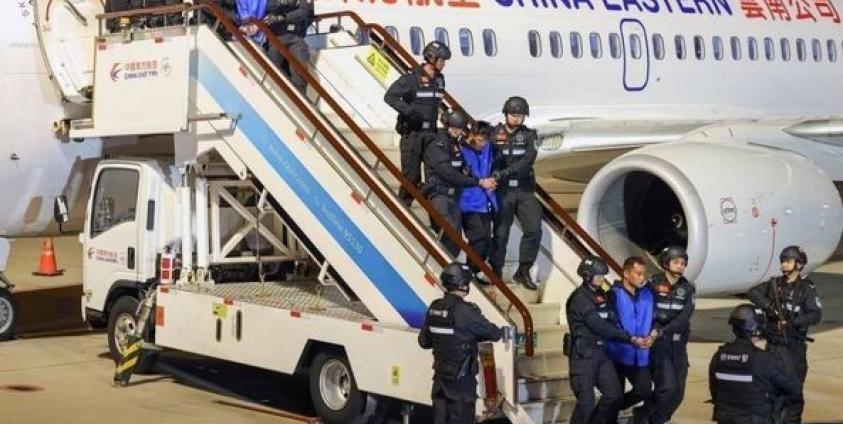The Military Council has transferred 10 individuals, including a former Kokang militia leader, who were actively involved in telecom scamming (Zhapian) businesses, based in the Kokang Self-Administered Zone, to China.
Chinese media reported that Bai Suo Cheng, the former Kokang militia leader, along with other businessmen who were wanted under China's arrest warrant, have been handed over to Chinese police at Naypyidaw Airport, and repatriated on a charter flight.
Apart from Bai Suo Cheng, the Zhapian business gang leaders transferred to Chinese police by the Military Council authorities included, Bai’s son Bai Ying Cang, Kokang Region No. 1006 Border Guard Force (BGF) chairman Wei Sung, and Kokang businessmen Lhou Aha Pound and Xu Lao Fa.
The 10 fugitives handed over by the Junta were subsequently arrested by Chinese special forces at Naypyidaw Airport. But reports indicate that an additional four leaders of online scamming gangs were not handed over by Myanmar police , and remain on the list of individuals issued arrest warrants by China on December 10th.
Locals also reported that on January 23rd, the Military Council and allied militias apprehended over 1,000 undocumented Chinese nationals involved in operating online scamming businesses based in Namhsan Township in southern Shan State.
Due to the Three Brotherhood Alliance's 'Operation 1027', the Junta was compelled to hand over nearly 40,000 Chinese citizens involved in telecom scamming from its controlled areas, back to China, according to the Alliance.
Prior to 1027 operation, China was growing weary of the coup regime’s failure to take
decisive action to deliver on Beijing’s repeated requests to arrest them. Since the regime’s stunning military losses to 1027 in Shan State, the pressure on the Junta to cooperate against the cyber-scam gangs has finally resulted in handing some key figures over to the Chinese special forces.
But the Brotherhood Alliance alleges that 4 Chinese leaders who masterminded these crime networks were excluded from the transfer, and that the Military Council continues to provide protection for them.







